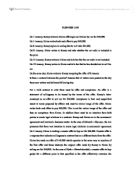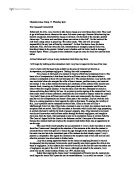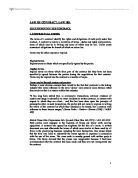BUSINESS LAW
On 1 January, Kenny writes to Elaine offering to sell Elaine her car for $50,000.
On 5 January, Elaine writes back and offers to pay $40,000.
On 8 January, Kenny replies in writing that he will take $45,000.
On12 January, Elaine writes to Kenny and asks whether the car radio is included in the price.
On 15 January, Kenny writes to Elaine and tells her that the car radio is not included.
On 19 January, Kenny writes to Elaine and tells her that he has decided not to sell his car.
On the same day, Elaine writes to Kenny accepting the offer of 8 January.
Is there a contract between the parties? Assume that all letters were posted on the day they were written and delivered following day.
For a valid contract to exist there must be offer and acceptance. An offer is a statement of willingness to be bound by the terms of the offer. Kenny’s letter construed as an offer to sell car for $50,000. Acceptance is final and unqualified assent to terms proposed by offeror and must be mirror image of the offer. Elaine writes back and offers to pay $40,000. This is not the mirror image of the offer and thus no acceptance from Elaine. In addition there must be an intention from both parties to create legal relations in a contract. Kenny and Elaine are in the commercial agreement and involved a business matter. In the case of Edwards v Skyways, the law presumes that there was intention to create legal relations in commercial agreement. On 5 January, Elaine is making a counter offer to buy car for $40,000. Counter offer is a response that indicates willingness to contract but on a different basis from the offer. Elaine has made an offer of $ 40,000 which operates in the same way as rejection of the first offer and hence destroys the original offer made by Kenny to Elaine by selling car for $50,000. As the case of Hyde v Wrench decided, a counter offer to buy goods for a different price to that specified in the offer effectively overrules the original offer. Furthermore Elaine’s letter on 5 January is a new offer and will require acceptance in order to form a contract. On 8 January, Kenny replies in writing that he will take $45,000. Kenny is making a fresh offer for himself.







